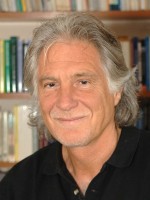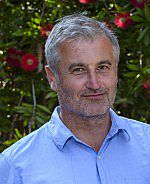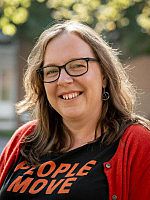The cluster’s research is global in scope, with a particular focus on the circumstances in which migration can most effectively reduce poverty and expertise on migration dynamics in the UK, Europe, Africa and the Middle East, South and East Asia.
Our flagship Migrating out of Poverty Research Programme Consortium ran for ten years with DfID-funding (now FCDO), ending in 2019. Working with the Climate, Science and Society cluster researchers are also actively investigating the relationship between climate change and migration.
Cluster members form the core of the interdisciplinary Sussex Centre for Migration Research (SCMR), directed by Paul Statham, which leads research at University level with members in 14 different departments.
The cluster supports the MA in Migration Studies, a vibrant body of PhD students, and has a wealth of connections with local UK community-based migrant and refugee organisations, as well as UK, European and international policy and scholarly networks. Examples include Collyer, who chairs the Independent Group on Country of Origin Information within the UK government office of the Chief Inspector of Borders and Immigration; Deshingkar, who has advised the Indian Ministry of Housing and Urban Affairs in supporting their response to the massive movements of migrant workers during the pandemic; Oeppen who has advised OECD-DAC and IOM on return migration; and Rogaly who has made critical interventions into the terms of contemporary public debates on immigration.
Research themes:
Migration and development
Research on rural-urban and international mobility furthers understanding of demographic change and migrants’ precarious employment in the global South (Rogaly, Deshingkar). It has contributed to the evidential base of the Foresight/UK Science Advisor’s project on migration and climate change (Kniveton). Studies of migrant remittances have broken new ground by exploring gender dynamics (King), processes of return ‘home’ to Afghanistan and Greece (Oeppen, King) and the politics of transnational diasporic investment in urban property (McGregor). Research shaped the British government’s input to the Global Forum on Migration and Development, while the World Bank used SCMR’s Global Migrant Origin Database to produce new estimates of the economic value of liberalising migration.
Transnationalism, work and citizenship
This strand of research combines policy-oriented studies of work, integration and citizenship with understandings of lived experience, stretched lifeworlds, and the politics of identity and diversity. Rogaly’s AHRC Fellowship and earlier ESRC work in Peterborough and Norwich provides new understanding of immobility/fixity in debates over diversity, faith, migration and ‘indigeneity’ in urban space. He advances debates over illegality in migrant labour markets, while McGregor’s research provides new insight into deportability and detention. Collyer’s projects include: research on ‘Social and labour integration’ as part of a Marie Curie international network (INTEGRIM), a European FP7 project on 'Temporary versus permanent migration' and an analysis of mosque-building in the UK as part of a Norwegian-led project on nationalism, ethnic and religious diversity. Oeppen’s work on Afghan diasporas furthers thinking on the relationship between transnationalism and integration. Research has set new agendas on elite mobility through Walsh’s study of expatriate lives in the Gulf region, while King has pushed forward debates over second generation and ‘counter diasporic’ movements.
Conflict, displacement and asylum
Research includes the first evaluation of Refugee Resettlement in the UK (ESRC 2013-6) (Collyer), and an assessment of the consequences of conflict for refugee communities in the UK (Oeppen). Studies of the politics of asylum in the UK have a comparative (EU/USA) dimension through the Asylum Network Project (Oeppen). McGregor’s ESRC funded research advances debates over the transnational politics of exile. Research on geographies of conflict and displacement includes: an IDRC-funded study of involuntary resettlement in Sri Lanka, research on the fragmented journeys of North African transit migration (Collyer), and the politics of Afghan and Zimbabwean regional and international diasporas (Oeppen and McGregor). A GCRF funded programme on Protracted Displacement Economies investigates the potential for developmental gain for both host and displaced populations through studies of localised livelihood strategies that include market and non-market transactions.
Individual staff interests:
- Michael Collyer
-
 Michael Collyer is a political geographer. His interests include: asylum, emigration states, diaspora engagement policies, transit migration, migrant voting, resettlement and others. He has particular expertise on North Africa, Europe and Sri Lanka. He was Fulbright Scholar in University of Washington, Seattle. Recent publications include Emigration Nations (Palgrave, 2013.
Michael Collyer is a political geographer. His interests include: asylum, emigration states, diaspora engagement policies, transit migration, migrant voting, resettlement and others. He has particular expertise on North Africa, Europe and Sri Lanka. He was Fulbright Scholar in University of Washington, Seattle. Recent publications include Emigration Nations (Palgrave, 2013.See also Michael's Sussex web profile
- Priya Deshingkar
-
 Priya Deshingkar is Research Director or the Migrating out of Poverty Research Consortium. Her research focuses on rural/urban migration, precarious unemployment and rural poverty, gender, and work – particularly domestic, construction and industrial labour with a major focus on South Asia and Africa. Recent publications include Circular Migration and Multi-locational Livelihood Strategies in India (co-edited with John Farrington, 2009).
Priya Deshingkar is Research Director or the Migrating out of Poverty Research Consortium. Her research focuses on rural/urban migration, precarious unemployment and rural poverty, gender, and work – particularly domestic, construction and industrial labour with a major focus on South Asia and Africa. Recent publications include Circular Migration and Multi-locational Livelihood Strategies in India (co-edited with John Farrington, 2009).See also Priya's Sussex web profile
- Russell King
-
 Russell King has conducted research on labour migration, retirement migration, student migration and return migration in Italy, Greece, Cyprus, Albania, Turkey, Ghana and Cote d'Ivoire. Recent publications include Gender, Remittances and Development: Albania's Economy and Society in Transition, with Julie Vulnetari (I.B. Tauris 2011), Counter-Diaspora: The Greek Second Generation Returns 'Home', with Anastasia Christou (Harvard Univ.Press 2014). He was Editor of the JEMS (2000-13) and Founding Director of SCMR.
Russell King has conducted research on labour migration, retirement migration, student migration and return migration in Italy, Greece, Cyprus, Albania, Turkey, Ghana and Cote d'Ivoire. Recent publications include Gender, Remittances and Development: Albania's Economy and Society in Transition, with Julie Vulnetari (I.B. Tauris 2011), Counter-Diaspora: The Greek Second Generation Returns 'Home', with Anastasia Christou (Harvard Univ.Press 2014). He was Editor of the JEMS (2000-13) and Founding Director of SCMR.See also Russell's Sussex web profile
- JoAnn McGregor
-
 JoAnn McGregor’s research focuses on conflict and displacement; Zimbabwe and Southern Africa; African diasporas and transnationalism; asylum and detention in Britain. Recent publications include: Zimbabwe’s New Diaspora: Displacement and the Cultural Politics of Survival, with Ranka Primorac (Berghahn 2010). She is Director of the new Sussex Africa Centre, and Deputy Chair of the Board of the Journal of Southern African Studies.
JoAnn McGregor’s research focuses on conflict and displacement; Zimbabwe and Southern Africa; African diasporas and transnationalism; asylum and detention in Britain. Recent publications include: Zimbabwe’s New Diaspora: Displacement and the Cultural Politics of Survival, with Ranka Primorac (Berghahn 2010). She is Director of the new Sussex Africa Centre, and Deputy Chair of the Board of the Journal of Southern African Studies.See also JoAnn's Sussex web profile
- Dom Kniveton
-
 Dom's work in migration has focused on the nexus of environmental change and migration. In particular he is interested in the emergence of migration flows from the confluence of the different drivers of migration and how these are impacted by climate change. This work has led to publications in Nature Climate Change, Global Environmental Change and Environment and Planning A, presentations in a variety of fora including the United Nations and projects on migration and climate change in, for example, Bangladesh. He is also currently a visiting scientist at the International Centre for Integrated Mountain Development (ICIMOD) looking at migration and environmental change throughout the Hindu-Kush-Himalayas and a member of the Population Environment Research Network supported by the International Union for the Scientific Study of Population (IUSSP) and is co-sponsored by the International Human Dimensions Programme (IHDP) on Global Environmental Change.
Dom's work in migration has focused on the nexus of environmental change and migration. In particular he is interested in the emergence of migration flows from the confluence of the different drivers of migration and how these are impacted by climate change. This work has led to publications in Nature Climate Change, Global Environmental Change and Environment and Planning A, presentations in a variety of fora including the United Nations and projects on migration and climate change in, for example, Bangladesh. He is also currently a visiting scientist at the International Centre for Integrated Mountain Development (ICIMOD) looking at migration and environmental change throughout the Hindu-Kush-Himalayas and a member of the Population Environment Research Network supported by the International Union for the Scientific Study of Population (IUSSP) and is co-sponsored by the International Human Dimensions Programme (IHDP) on Global Environmental Change.See also Dom's Sussex web profile
- Ceri Oeppen
-
 Ceri Oeppen’s research interests include: asylum, transnationalism and integration, return migration, geographies of conflict, Afghanistan and its diasporas. She is Global Fellow of the Peace Research Institute, Oslo, and part of the PREMIG return programme. She is co-editor (with A. Schlenkhoff) of Beyond the 'wild tribes': understanding modern Afghanistan and its diaspora (Hurst, 2010) and authored a children’s resource book: Hopes, needs, rights and laws: how do governments and citizens manage migration and settlement (Crabtree 2010).
Ceri Oeppen’s research interests include: asylum, transnationalism and integration, return migration, geographies of conflict, Afghanistan and its diasporas. She is Global Fellow of the Peace Research Institute, Oslo, and part of the PREMIG return programme. She is co-editor (with A. Schlenkhoff) of Beyond the 'wild tribes': understanding modern Afghanistan and its diaspora (Hurst, 2010) and authored a children’s resource book: Hopes, needs, rights and laws: how do governments and citizens manage migration and settlement (Crabtree 2010). See also Ceri's Sussex web profile
- Ben Rogaly
-
 Ben Rogaly recently completed an AHRC Fellowship through which he led a team of academics and arts practitioners in a project ‘Places for All? A Multi-Media Investigation of Citizenship, Work and Belonging in a Fast Changing Provincial City’. His interdisciplinary and collaborative research in England and India has focused on temporary migration for work in agriculture and food processing, and on the intersections between migration, ‘indigeneity’, class and place. His most recent book (with Becky Taylor) is Moving Histories of Class and Community: Identity, Place and Belonging in Contemporary England.
Ben Rogaly recently completed an AHRC Fellowship through which he led a team of academics and arts practitioners in a project ‘Places for All? A Multi-Media Investigation of Citizenship, Work and Belonging in a Fast Changing Provincial City’. His interdisciplinary and collaborative research in England and India has focused on temporary migration for work in agriculture and food processing, and on the intersections between migration, ‘indigeneity’, class and place. His most recent book (with Becky Taylor) is Moving Histories of Class and Community: Identity, Place and Belonging in Contemporary England.See also Ben's Sussex web profile
- Sarah Scuzzarello
-
 Sarah Scuzzarello (PhD Lund University) is a lecturer at the Department of Geography and affiliated researcher at the Sussex Centre for Migration Research (SCMR). Over the last decade, Sarah has established a research programme focussed on how state institutional and policy approaches to migration and ‘integration’ shape migrants’ identification processes and life chances, often working within a cross-national comparative framework. More recently, she has started an additional strand of research on gender and transnational migration between the West and Thailand. Sarah is in-house Associate Editor for the Journal of Ethnic and Migration Studies (JEMS). In 2019, she launched the IMISCOE Standing Committee Gender and Sexuality in Migration Research (GenSeM), which she co-coordinates with Laura Morosanu, LPS.
Sarah Scuzzarello (PhD Lund University) is a lecturer at the Department of Geography and affiliated researcher at the Sussex Centre for Migration Research (SCMR). Over the last decade, Sarah has established a research programme focussed on how state institutional and policy approaches to migration and ‘integration’ shape migrants’ identification processes and life chances, often working within a cross-national comparative framework. More recently, she has started an additional strand of research on gender and transnational migration between the West and Thailand. Sarah is in-house Associate Editor for the Journal of Ethnic and Migration Studies (JEMS). In 2019, she launched the IMISCOE Standing Committee Gender and Sexuality in Migration Research (GenSeM), which she co-coordinates with Laura Morosanu, LPS. - Ron Skeldon
-
 Ron Skeldon divides his time between Sussex and Maastricht University in the Netherlands. His interests are in demographic processes, migration and development with particular expertise in SE Asia as well as UK and Europe. In 2013 he was consultant at the Bauhinia Foundation Research Centre, Hong Kong working on Hong Kong’s future population and manpower needs. Recent publications include Migration and Asia: Reflections on Continuities and Change, and Shifting categories of belonging in the United Kingdom census.
Ron Skeldon divides his time between Sussex and Maastricht University in the Netherlands. His interests are in demographic processes, migration and development with particular expertise in SE Asia as well as UK and Europe. In 2013 he was consultant at the Bauhinia Foundation Research Centre, Hong Kong working on Hong Kong’s future population and manpower needs. Recent publications include Migration and Asia: Reflections on Continuities and Change, and Shifting categories of belonging in the United Kingdom census.See also Ron's Sussex web profile
- Paul Statham
-
 Paul Statham is Professor of Migration and Director of the Sussex Centre for Migration Research (SCMR) in the School of Global Studies at the University of Sussex, UK. The SCMR is one the University’s few designated Interdisciplinary Research Centres. He is Editor-in-Chief of the Journal of Ethnic and Migration Studies (JEMS) that was ranked no1 in “Ethnic Studies” in the 2017 impact factor ratings. Paul convenes the Masters MA Migration Studies and the Doctoral Programme in Migration at Sussex. In 2015, he established the Sussex-Mahidol Migration Partnership (SMMP - www.sussexmahidolmigration.co.uk) to build a capacity in migration research between Europe and SE Asia. In 2016, a further partnership the Europe Asia Migration Network (EAMiN – www.eamin.org) was established between migration centres in the two regions, including the SCMR, MMC (Mahidol, Thailand), ARI (NUS Singapore), PRIO (Norway), BIM (Humboldt Berlin, Germany) and CUHK (Hong Kong). In Spring semester 2017, he held the position of Distinguished Professor at the Advanced Research Collaborative at the CUNY Graduate Center in New York.
Paul Statham is Professor of Migration and Director of the Sussex Centre for Migration Research (SCMR) in the School of Global Studies at the University of Sussex, UK. The SCMR is one the University’s few designated Interdisciplinary Research Centres. He is Editor-in-Chief of the Journal of Ethnic and Migration Studies (JEMS) that was ranked no1 in “Ethnic Studies” in the 2017 impact factor ratings. Paul convenes the Masters MA Migration Studies and the Doctoral Programme in Migration at Sussex. In 2015, he established the Sussex-Mahidol Migration Partnership (SMMP - www.sussexmahidolmigration.co.uk) to build a capacity in migration research between Europe and SE Asia. In 2016, a further partnership the Europe Asia Migration Network (EAMiN – www.eamin.org) was established between migration centres in the two regions, including the SCMR, MMC (Mahidol, Thailand), ARI (NUS Singapore), PRIO (Norway), BIM (Humboldt Berlin, Germany) and CUHK (Hong Kong). In Spring semester 2017, he held the position of Distinguished Professor at the Advanced Research Collaborative at the CUNY Graduate Center in New York.See also Paul's Sussex web profile
- Katie Walsh
-
 Katie Walsh’s research interests include: British diaspora, belonging and intimacy, home and domesticity, gender, ageing and migration, migration in the Gulf region. Current projects include research with older people in England, focusing on narratives of home, belonging, and British emigration over the life-course. Publications include Transnational Migration and Home in Older Age with Lena Näre (Routledge forthcoming) and The New Expatriates: Postcolonial Approaches to Mobile Professionals with Anne-Meicke Fechte.
Katie Walsh’s research interests include: British diaspora, belonging and intimacy, home and domesticity, gender, ageing and migration, migration in the Gulf region. Current projects include research with older people in England, focusing on narratives of home, belonging, and British emigration over the life-course. Publications include Transnational Migration and Home in Older Age with Lena Näre (Routledge forthcoming) and The New Expatriates: Postcolonial Approaches to Mobile Professionals with Anne-Meicke Fechte.See also Katie's Sussex web profile
- Tahir Zaman
-
 'I'm primarily interested in matters pertaining to refugee agency and alternative socio-cultural understandings of refuge during times of mass-displacement. I was awarded a PhD in Refugee Studies from the University of East London in 2013. My work explored the social and cultural life-worlds of Iraqi refugees in Damascus where I undertook fieldwork in 2010 and 2011. My doctoral thesis was published as a book manuscript by Palgrave Macmillan in 2016 under the title of 'Islamic traditions of refuge in the crises of Iraq and Syria'. My doctoral research also critically engages with the limits and opportunities of faith-based humanitarianism. I have since worked extensively with a leading peace-building and conflict transformation NGO on considering the role of Syrian Diaspora actors in responding to mass displacement and contributing towards peace-building. My current research interest focuses on the intersections of displacement, humanitarianism and alternative economies. I am a Co-Investigator on Protracted Displacement Economies - a GCRF funded project investigating landscapes of care and social economies in five countries affected by mass-displacement - Lebanon, Pakistan, Ethiopia, Myanmar and the DRC.'
'I'm primarily interested in matters pertaining to refugee agency and alternative socio-cultural understandings of refuge during times of mass-displacement. I was awarded a PhD in Refugee Studies from the University of East London in 2013. My work explored the social and cultural life-worlds of Iraqi refugees in Damascus where I undertook fieldwork in 2010 and 2011. My doctoral thesis was published as a book manuscript by Palgrave Macmillan in 2016 under the title of 'Islamic traditions of refuge in the crises of Iraq and Syria'. My doctoral research also critically engages with the limits and opportunities of faith-based humanitarianism. I have since worked extensively with a leading peace-building and conflict transformation NGO on considering the role of Syrian Diaspora actors in responding to mass displacement and contributing towards peace-building. My current research interest focuses on the intersections of displacement, humanitarianism and alternative economies. I am a Co-Investigator on Protracted Displacement Economies - a GCRF funded project investigating landscapes of care and social economies in five countries affected by mass-displacement - Lebanon, Pakistan, Ethiopia, Myanmar and the DRC.'See also Tahir's Sussex web profile








